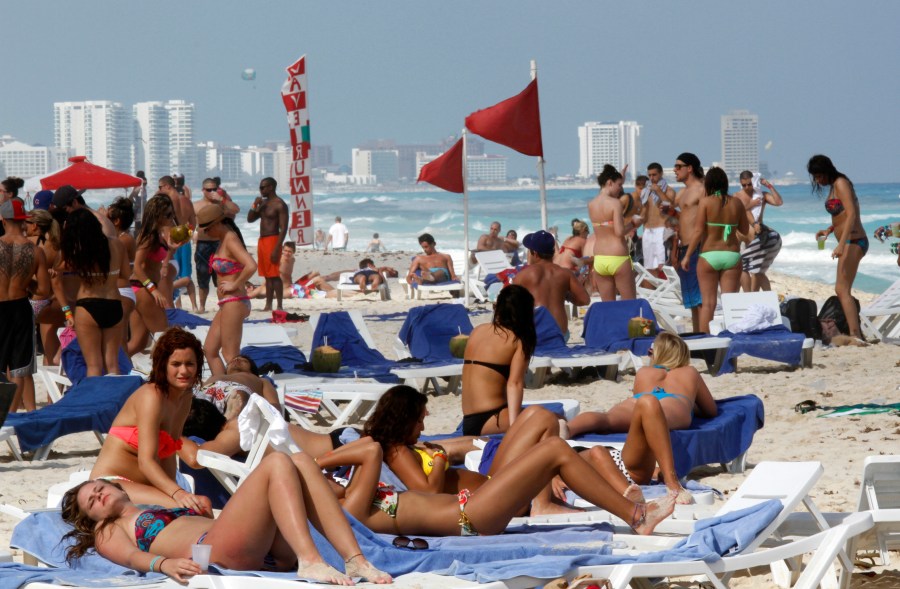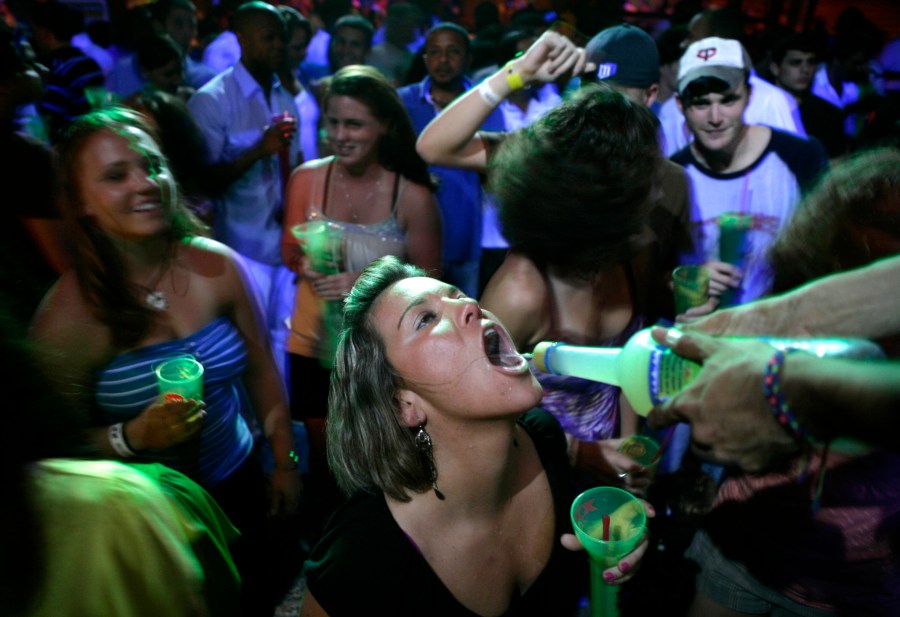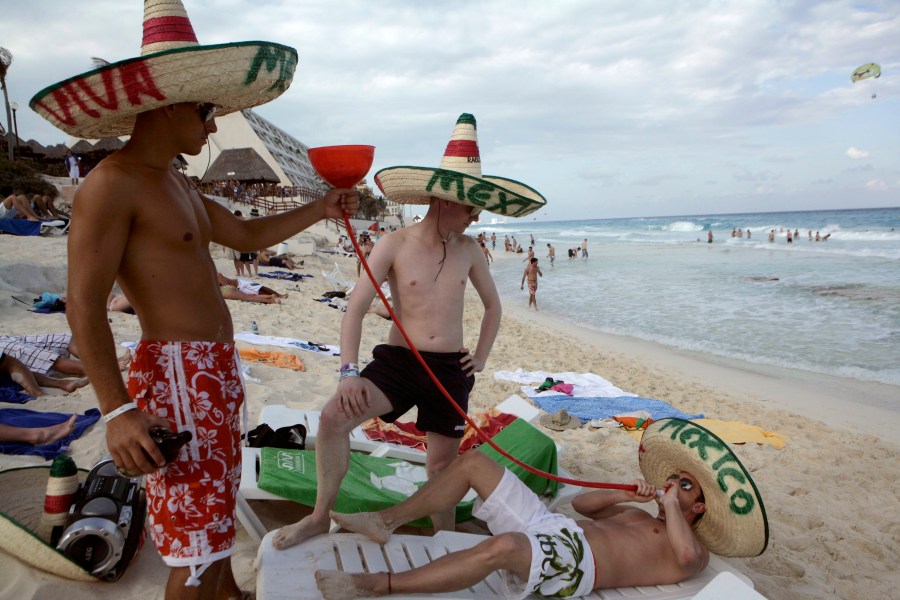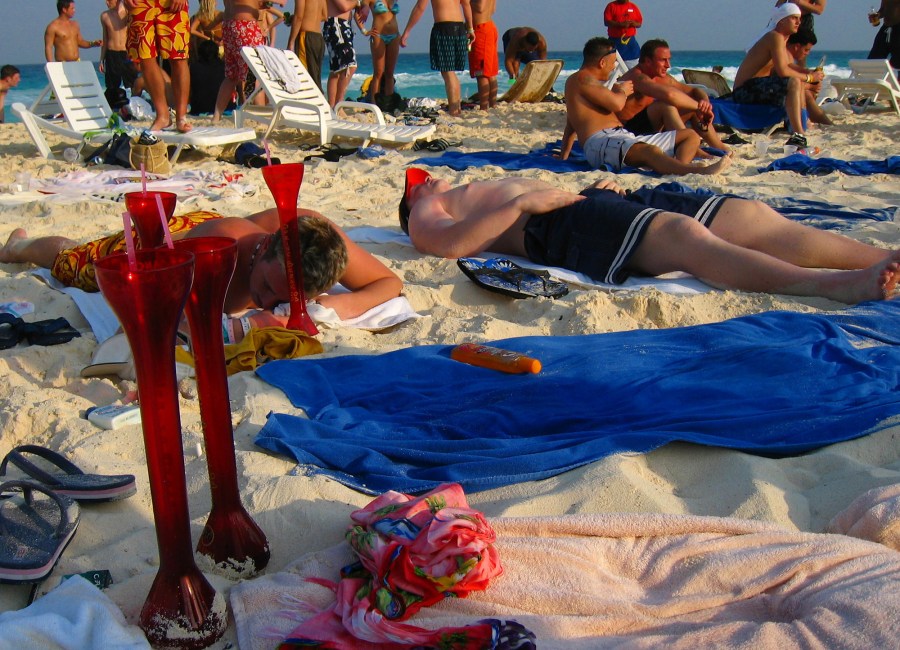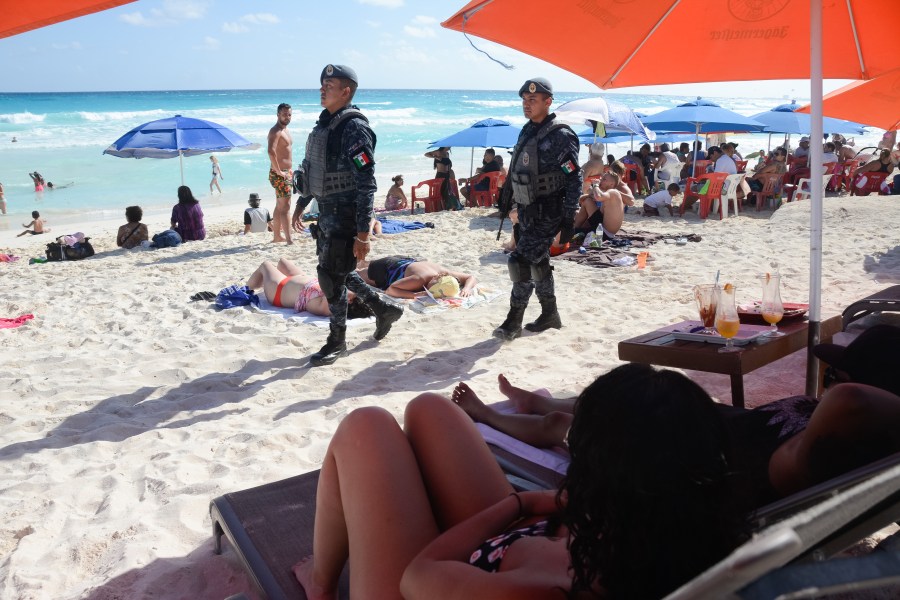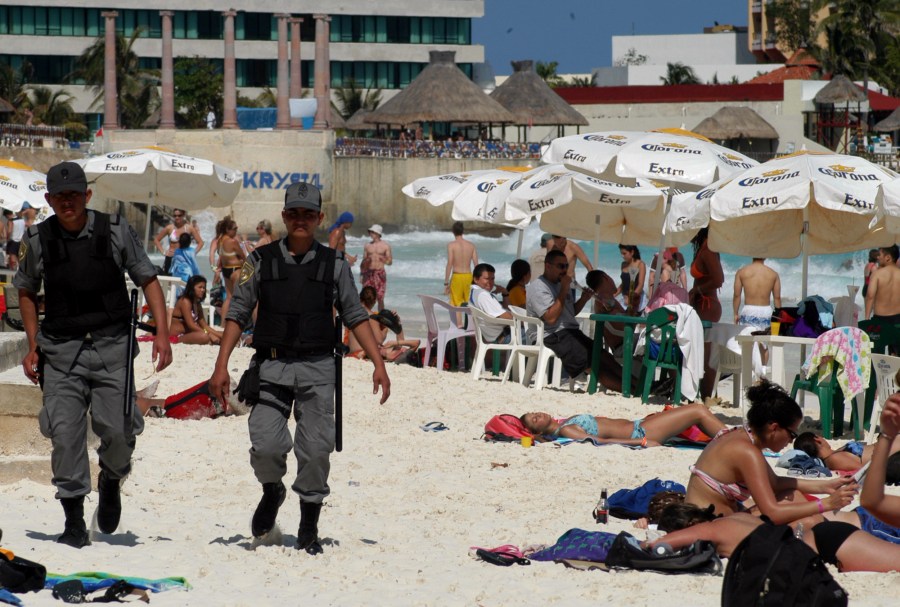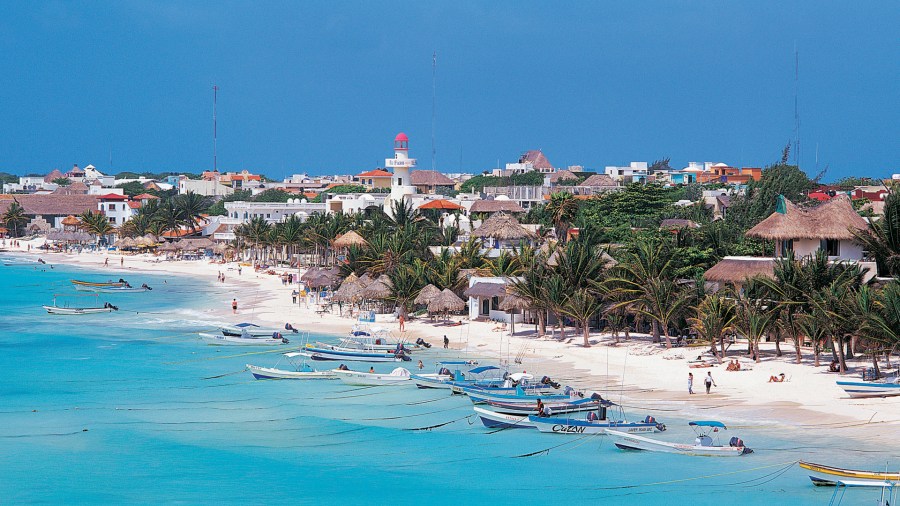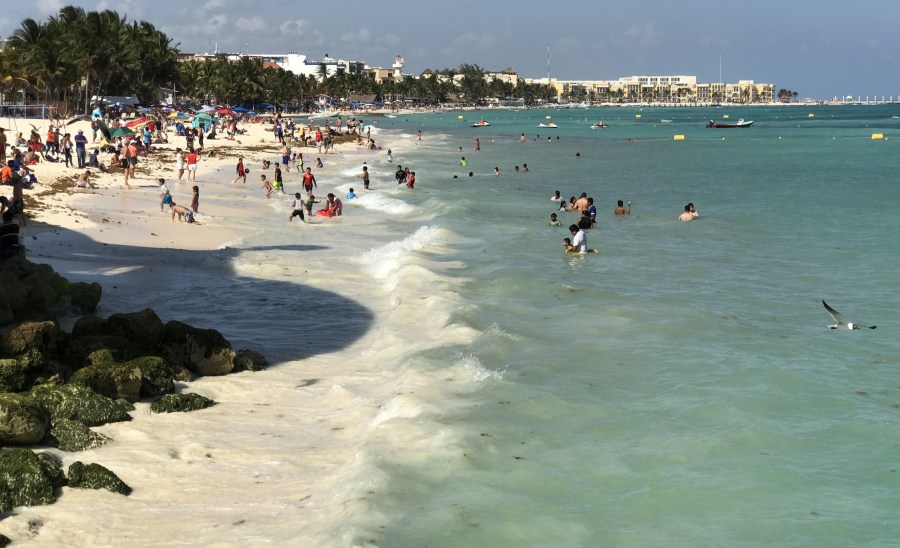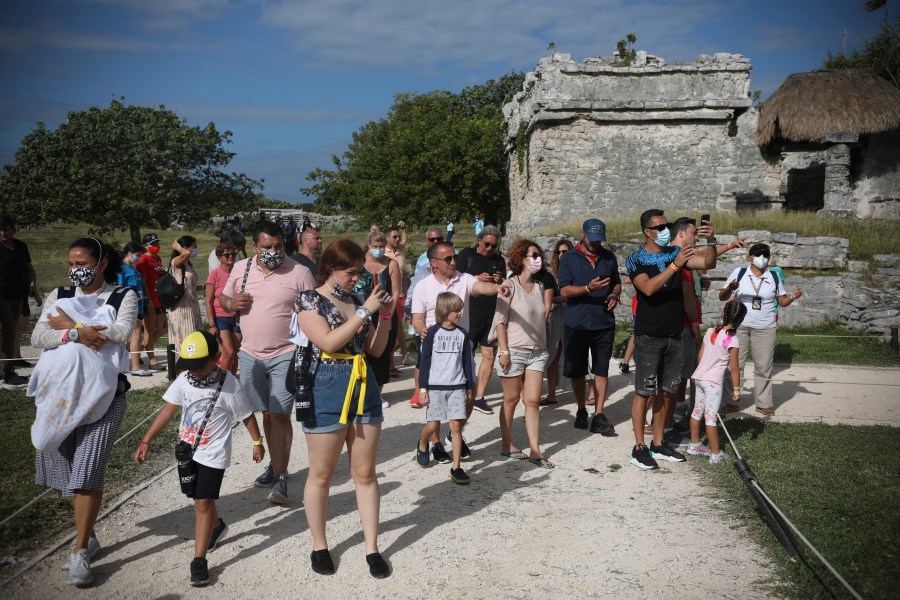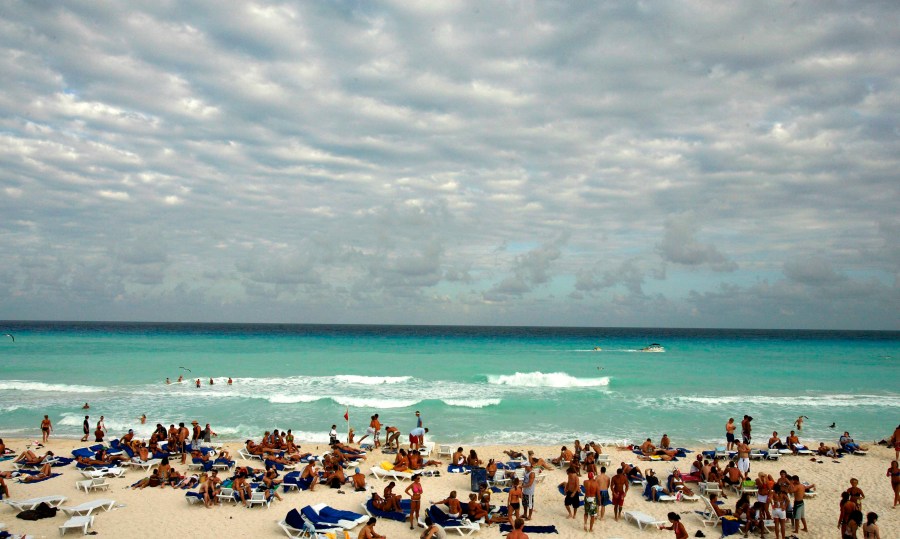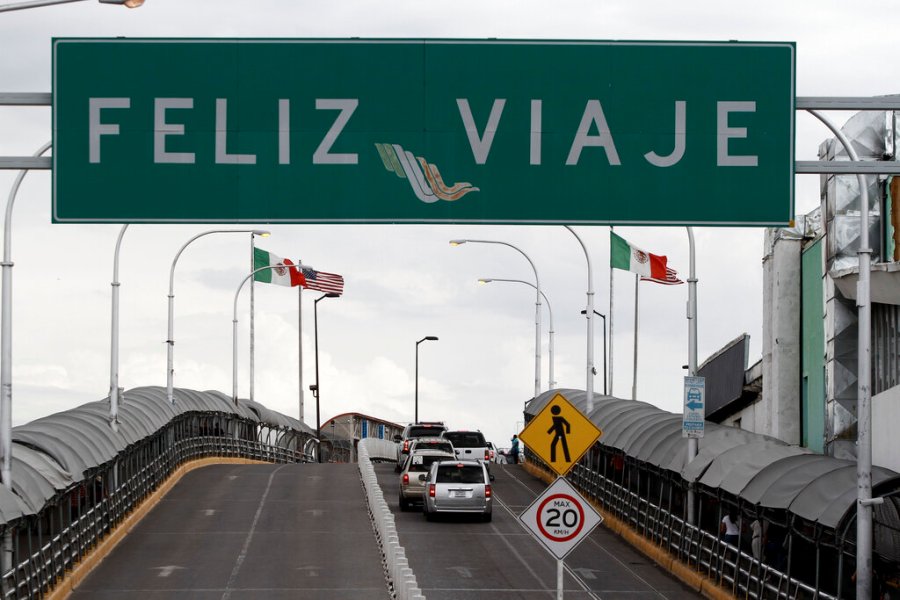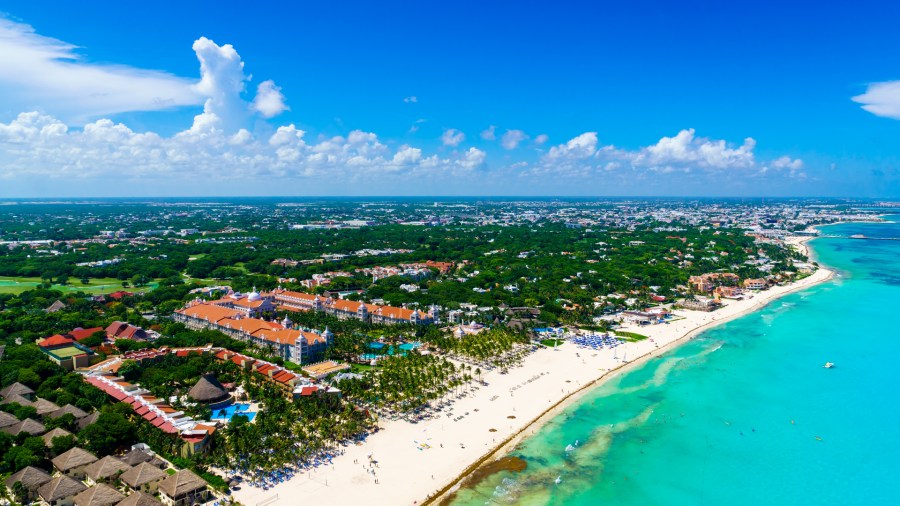A travel warning was issued by the U.S. for Americans planning to visit Mexico for spring break.
The warning, which was issued by the U.S. Embassy and Consulates in Mexico, noted that “violent crime – such as homicide, kidnapping, carjacking, and robbery – is widespread and common in Mexico.”
Every year, thousands of travelers, especially in Southern California, head to Mexico for spring break vacation.
Federal officials said while the majority of travelers do not encounter any serious issues, there are still many things visitors should watch out for, especially when partying in another country.
- Crime – Travelers should maintain a high level of situational awareness, avoid areas where illicit activities occur, and immediately leave any potentially dangerous situations.
- Visitors should be extra cautious in the downtown areas of popular spring break locations such as Cancun, Playa Del Carmen, and Tulum, especially after dark.
- Drugs – Drug possession and use, including medical marijuana, is illegal in Mexico and could result in a lengthy jail sentence.
- Visitors have become critically ill or even died in Mexico after using synthetic drugs or adulterated prescription pills.
- Unregulated Alcohol – Unregulated alcohol may be contaminated and could result in the drinker losing consciousness or becoming injured.
- Pharmaceuticals – Counterfeit medication is common and could be ineffective, have the wrong strength, or contain dangerous ingredients.
- Medication should be purchased after consulting with a medical professional and from reputable establishments.
- Sexual Assault – Visitors should be aware of the dangers of rape and sex assault overseas. Suspects may target drunk or isolated people or potentially drug them.
- Drowning – Some beaches have strong undercurrents and rip tides. Beaches may not have any lifeguards, warnings, or signs of unsafe conditions.
- Medical Emergencies – An illness or accident could require medical treatment or hospitalization in Mexico.
- Private hospital prices can be higher than those in the U.S. Many facilities require payment (sometimes only in cash) either before providing treatment or before discharging a patient.
- Guns and Ammunition – All guns and even small amounts of ammunition are illegal in Mexico. Firearms and other weapons violations could result in lengthy jail time.
- Arrests – Drunk and disorderly behavior, public urination, and open alcohol containers in vehicles are illegal in Mexico.
- Immigration – Violating the terms of your stay in Mexico could result in steep fines and detention.
Anyone planning to visit Mexico soon is advised to prepare for emergencies by reading the Mexico Travel Advisory and Country Information Page for details on Mexican travel including entry requirements.
Enrolling in the State Department’s Smart Traveler Enrollment Program to receive up-to-date safety conditions in Mexico is advised and will help the U.S. Embassy contact you during an emergency.
Other tips to stay safe while traveling in Mexico include:
- Always call 911 in an emergency. “Although there may be English-speaking operators available, it is best to seek the assistance of a Spanish speaker to place the call,” officials advise.
- Ensure your health insurance provides coverage in Mexico or purchase extra travel insurance beforehand. Confirm the costs of any medical treatment in advance whenever possible.
- When partying or having fun, always drink responsibly and keep a close eye on your drink in case of tampering.
- Always stay with a group of friends or family when spending time in clubs, bars, casinos, walking in dimly lit areas, or riding a taxi at night.
- Avoid displaying signs of wealth such as expensive watches, jewelry or accessories.
- Be sure to follow Mexican laws as some may differ from U.S. laws.
- Limit the amount of cash carried in public and monitor credit/debit cards for unauthorized charges. Be careful when withdrawing cash and avoid using ATMs in isolated or dimly-lit areas.
- Be aware when using public transportation. Embassy officials recommend using radio taxis or those from “sitio” taxi stands. Mobile app-based car services such as Uber and Cabify are available in many Mexican cities as a safe alternative to taxis.
- Inform loved ones at home of all travel plans.
- Contact the nearest U.S. Embassy or Consulate if further assistance is needed.
Specific travel advisories issued by the U.S. State Department for Mexican states and cities can be found here. More information on the spring break travel warning from the U.S. Embassy and Consulates in Mexico can be found here.

